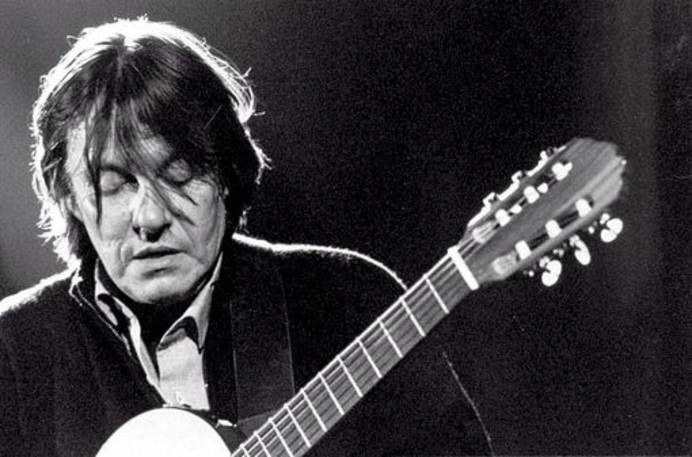


NYU’s Casa Italiana Zerilli Marimò [2]doesn’t cease to amaze, continuously providing the public with culturally enriching events on its premises. Not a week goes by without a well-organized educational or artistic affair held at this venue. Recently, it hosted a touring lecture-concert in tribute to Fabrizio de André, the greatest Italian singer, amazing songwriter and a storyteller of poetic dimensions.
The seats of the locale filled up quickly on a crisp fall evening. The grand piano stood firmly in the middle of the stage, its keys impatiently awaiting to be touched. The lights were dimmed and a video montage on the screen commenced the performance. The peaceful voice of De André flowed from the speakers, reaching far beyond the ears of the listeners, it touched their souls, it crawled under their skin, it created goosebumps. It is this voice that they all revere, it is this man they came to pay tribute to, it is this genius that they rightly worship.
Born on the 18th of February, 1940 in Genoa, Fabrizio de André discovered a fondness for poetry, music and theater in the early days of his schooling, and although he tried to follow a more structured path in life by enrolling in law school, yet he never allowed music to disappear from his daily routine. He always played the guitar and violin, getting his inspiration from George Brassens and Medieval troubadour music. He released his first record in 1958 and his musical career took off full speed in the late 60’s. What followed is considered to be the most important part of the history of Italian music. Fernanda Piavano, an Italian poet said of De André: “Fabrizio is the greatest poet of the last fifty years in Italy, […] he is that sweet storyteller who, for the first time, put forward ideas of pacifism, non violence and nonconformity. Instead of saying that Fabrizio is the Italian Bob Dylan, it would be necessary to say that Bob Dylan is the American Fabrizio De André.”
The idea of the traveling tribute to the icon of Italian music was born out of the publication of Ferdinando Molteni’s and Alfonso Amodio’s book titled Controsole. Fabrizio De André e crêuza de mä. The book is based on the 1984 interview that the artist gave in his native region of Liguria. The interview, a long lost interesting document analyzes the birth, production and destiny of De André’s most famous album, one in which he finds his way to the roots of his existence.
The presentation included readings and explanations by the authors, Molteni and Amodio, which retraced most important stages of De André’s life as well as highlighted parts of the book. The performance was elated by the inclusion of vocals from the artist’s repertoire performed by an astoundingly talented Genoese artist Eliana Zunino and accompanied by a highly skilled pianist Elena Buttiero and Molteni on guitar. Together they have delivered a praiseworthy concert honoring De André and his return to, in this particular album, native Genoa and its almost vanishing dialect and culture.
In the discovered interview De André states: “To lose one’s own origins in music, in literature, or pretending to forget them, pretending to never have had them, to follow the trend of the market, it is like losing one’s own instinct.”
Source URL: http://test.iitaly.org/magazine/focus/art-culture/article/creuza-de-ma-tribute-fabrizio-de-andre
Links
[1] http://test.iitaly.org/files/fabriziodeandrejpg
[2] http://www.casaitaliananyu.org